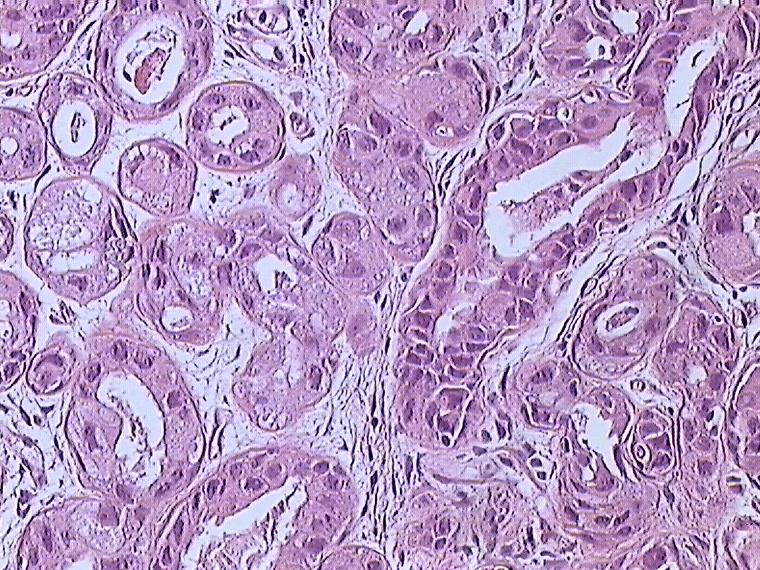Dr. Jay Gordon – “Anti-Vaccination”
Dr. Jay Gordon is a pediatrician and one of the stars of the anti-vaccinationist movement. (Dr. Gorski wrote an exellent criticism of many of his claims recently on SBM.) He is, in fact, the pediatrician to Jenny McCarthy’s son, Evan (who she claims was injured by vaccines). Several months ago he published an “open letter on vaccinations” which is now making the...
Does TV Cause Teen Pregnancy?
I’ll be the first to admit that the quality of TV programming, especially network programs, leaves much to be desired. Critics of television have blamed TV for everything from violence to obesity. Now studies have shown that teens who watch sexy programs are more likely to become sexually active and to get pregnant. I’m not so sure that these studies really show...
Do over one in five breast cancers detected by mammography alone really spontaneously regress?
It figures. Last Wednesday, right before the four-day Thanksgiving holiday weekend, as I was far more interested in preparing to have family over the next day than in what was going on in the medical news or the blogs, the results of a most fascinating study hit the news. In Medscape, the title of the news report was Mammography Study Suggests Some...
The “Gonzalez Trial” for Pancreatic Cancer: Outcome Revealed
A Review Dr. Lipson’s “detoxification” post on Thanksgiving Day and Dr. Gorski’s recent post about “Gerson Therapy” were timely, because last weekend I noticed something that I should have noticed months ago. Before delivering the punch line, let me remind you, Dear Reader, of the nature of the topic. The regimen advocated by Nicholas Gonzalez is a variation of a “detoxification” treatment for cancer that has...
The science of purging, or the purging of science?
It’s Thanksgiving in the U.S., one of my favorite holidays. Thanksgiving habits get set down early in life, and the while I may find your lima bean casserole execrable, to you it’s just not Thanksgiving without it. And speaking of excrement, you can expect to see adds encouraging you to “detox” from all of your holiday excesses. Outside the field of substance...
Fecal Transplants: Getting To The Bottom Of The Matter
Many Americans will be introducing more food than usual to their GI tracts on this Thanksgiving Day, and so I thought I’d provide you with a special gastroenterology-related post to complement the mood. If you have already eaten, I might suggest that you come back to this post on an empty stomach. I will be discussing the alternative medicine practice known as...
Bee Venom Therapy – Grassroots Medicine
Pat Wagner (or “The Bee Lady,” as she likes to be called) treats herself for multiple sclerosis (MS) by allowing bees to sting her. She calls this bee-venom therapy (BVT) and believes it has saved her from MS. There are now thousands of people who administer BVT to themselves or others, mostly in private homes by unlicensed practitioners. BVT is not prescribed...
Gulf War Illness
One-fourth of the veterans of the 1990-91 Gulf War complain of persistent memory and concentration problems, chronic headaches, widespread pain, gastrointestinal problems, and other chronic abnormalities not explained by well-established diagnoses. Treatments are ineffective and symptoms do not improve over time. Gulf War Syndrome or Gulf War Illness is a controversial diagnosis, and some have questioned whether it really exists. Now a...
NCCAM: the not-even-wrong agency
The National Center for Complementary and Alternative Medicine (NCCAM) is a government agency tasked with (among other things), “[exploring] complementary and alternative healing practices in the context of rigorous science.” In this space we have talked about NCCAM quite a bit, but I have to admit that I don’t think about them very much. The other day, though, I was reading though...

The (Not-So-)Beautiful (Un)Truth about the Gerson protocol and cancer quackery
Note added by editor: The complete movie is now available on YouTube: Although this blog is about medicine, specifically the scientific basis of medicine and threats to the scientific basis of medicine regardless of the source, several of us also have an interest in other forms of pseudoscience and threats to other branches of science. One branch of science that is, not...






Legislative Alchemy: “Naturopathic Doctor” licensing is bad medicine for Florida
Bad medicine, bad laws, bad choice